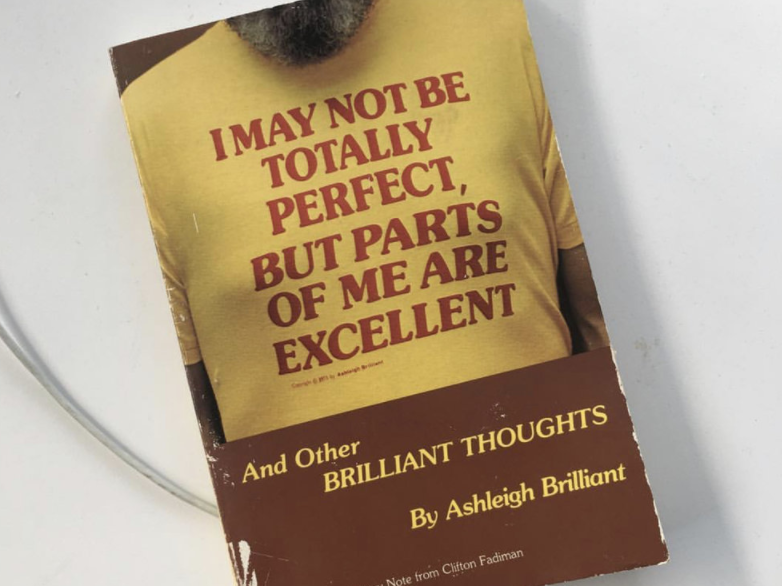Here is an invitation to ditch your resolutions this year.
Every year many of us wake up on January 1st, with a particular health, financial, and/or relationship-oriented resolution in mind.
For many of us, it revolves around our desire to start exercising or to get healthy, to be responsible with our money or to begin a task that we have never done before (ie: meditation). And although close to 77% of us stick to our resolutions for the first week or so, only 46% of us stick to it after 6 months.
Cue another failed New Year’s resolution.
But have we ever stopped to ask ourselves where the concept of the New Year’s resolutions began? It turns out that the Babylonians some 4,000 years ago first began making promises to their gods to pay their debts and return any objects they had borrowed. In return, if they kept their word, the pagan gods would bestow a favour on them for the coming year. If not, they would fall out of the gods’ favour — a place no one wanted to be.
These days paying debts and returning borrowed objects isn’t a high priority on our resolution list. Instead, our list is littered with a long line of self-improvement goals.
“I will stop eating Nutella”
“I will actually go to yoga, not just wear yoga pants”
Although most of these resolutions are valid and virtuous, they too will undoubtedly fail within a week or so from their inception. Why?
Because deep down, you and I, both believe we are broken
We believe that eating healthier will somehow bring us the partner we have been yearning for. We believe that going to yoga will give us that mental edge over our coworkers and losing a few extra pounds will fill the giant hole that a sense of unworthiness has created.
Let’s be honest, this is where many of us begin our new year. Myself included.
This year I thought it best that I become vegan so that I could enhance my cognitive agility. I should also try mushroom coffee. Perhaps I should also buy a new moisturiser. And so it begins…
Society loves this narrative. It profits off of it. It profits off the belief that we are defective, that we need improvement and that we are never satisfied with how we are.
The irony here is that in order to transform ourselves, we have to begin with accepting that we are inherently good.
This is why gym and yoga studios have January specials. Why books stores sell out of self-improvement books and why as a meditation teacher, I receive more emails during this month from students wanting to begin a meditation practice.
Self-Improvement
It may sound like I am ranting about self-improvement. Actually, I’m not. Continuous growth is what we should all strive for but in a healthy way. The healthy way is to first examine, like a good doctor would, the root cause of our desire for change. For example, we’d like to lose the extra weight; a desire to become healthier is always noble. But what motivates this desire? Was it having been shamed as a child? Was it the feeling that we are unlovable at this weight? In this case, losing the weight may not fully heal the wound that is bleeding. This can only happen through the prescription of self-love. Starving ourselves or suppressing ourselves in order to be accepted by others isn’t a recipe for long term happiness. It is a recipe for engraining our negative self-beliefs.
When we think that we are deficient in various ways, we believe that by changing ourselves, we can become good enough. This cycle of desire and craving is not only unhealthy but ultimately unsatisfying. Once we get the body, relationship, or financial situation that we want we are often still not content. We still want more. And so the unhealthy cycle continues, year after year.
Self-Acceptance
Many of us place a profound importance on external factors to create short-term happiness. Our culture loves a good hack. I don’t believe there is a way to hack yourself into self-acceptance.
The path to real and long-lasting transformation is to create the internal conditions that foster outer growth.
The internal conditions include making peace with the parts of ourselves that we hide from the world. I am ashamed that anger is my Achilles heel for as long as I can remember. Like a stone trapped in a boot, anger has followed me my whole life. But this year I began to accept it and tend to it, instead of rejecting it and avoid it. This emotion is as much a part of me as compassion and generosity. Through attention, acceptance and kindness, I have been able to understand why it arises. As I begin to understand why it arises, I can begin to dismantle it before it hurts myself or others. But for many years I put the dissolution of my anger onto activities like meditation and yoga to fix what was wrong. The path to real and long-lasting transformation is to create the internal conditions that foster outer growth.
Self-Realisation
Self-realisation occurs when we begin to see the way things really are. We begin to accept our imperfections rather than seeing them as negative parts of ourselves that need to be resolved. This process can be understood as an element of maturity or wisdom or awakening, I’d like to view this as self-realisation.
Often, it’s not about becoming a new person, but becoming the person you were meant to be, and already are, but don’t know how to be — Heath L. Buckmaster
Self-realisation is the awakening of the truth within us. It is the realisation that what makes us happy can rarely be found outside of us. It is the realisation that freedom from perfection resides in a deep acceptance of who we fundamentally are. A good person.
So this year, here is an invitation from me to you: ditch the resolutions. There may be nothing you need to resolve about your life. Instead, make the intention to accept yourself completely.
Learn to love the work in progress. Acknowledge the times your intention was fulfilled and be kind for the times that it wasn’t. Life is full of ups and downs, but we can always begin again. This is the human journey. This is our journey.
MANOJ DIAS
Born and raised in the Theravada Buddhist tradition, Manoj Dias is an animated speaker, humble teacher and always a friend. Once tethered to a life of self-management, instead of self-awareness, he now intimately understands what it means to be healed from the inside out. Through mindfulness and meditation, Manoj has helped thousands of people around the world trade mania for pause, so that they may live fearlessly in honour of a happier and more meaningful life.
Website –www.manojdias.com.au
Facebook – @hellomanojdias
Instagram – @manojdias_




